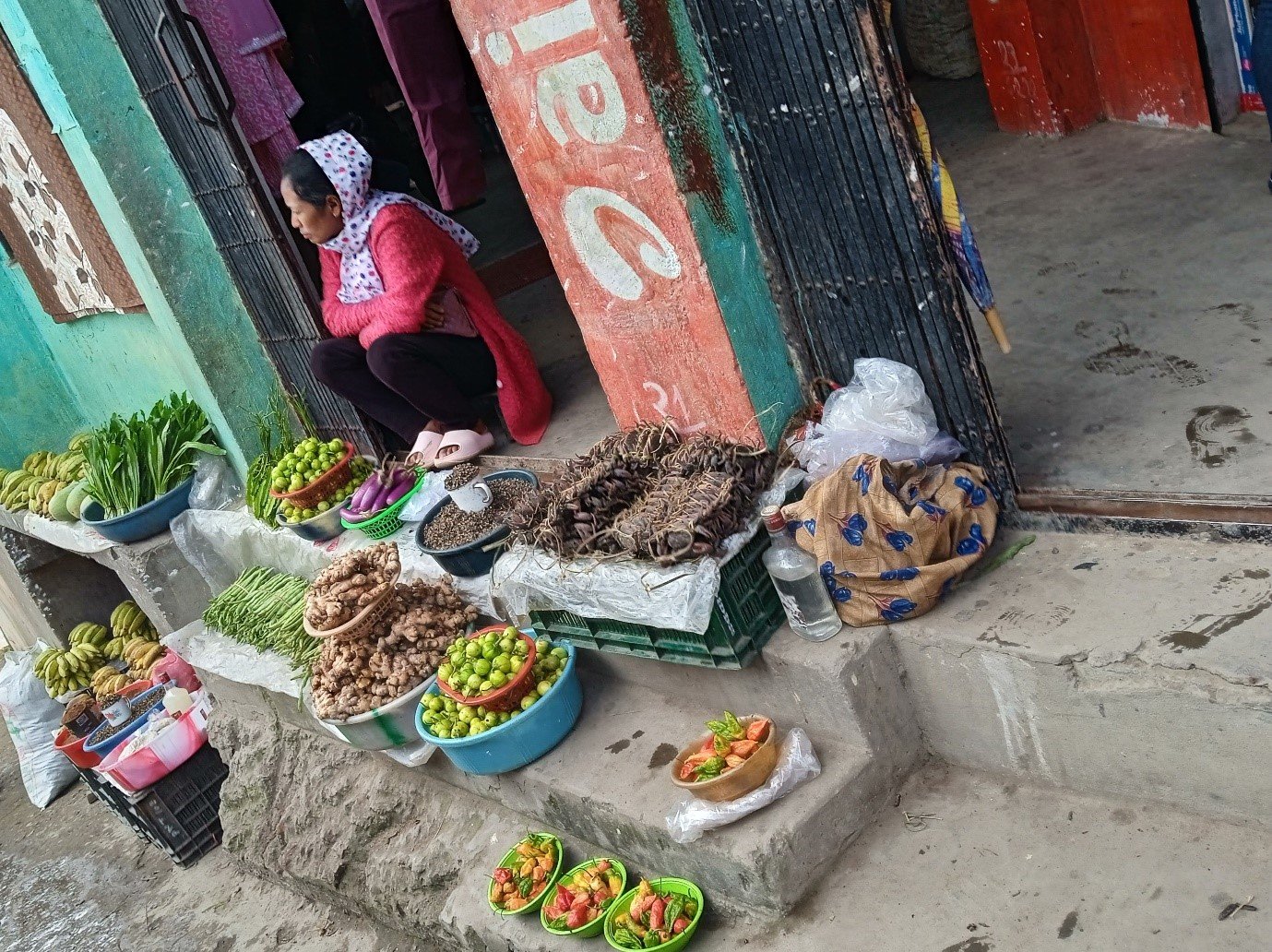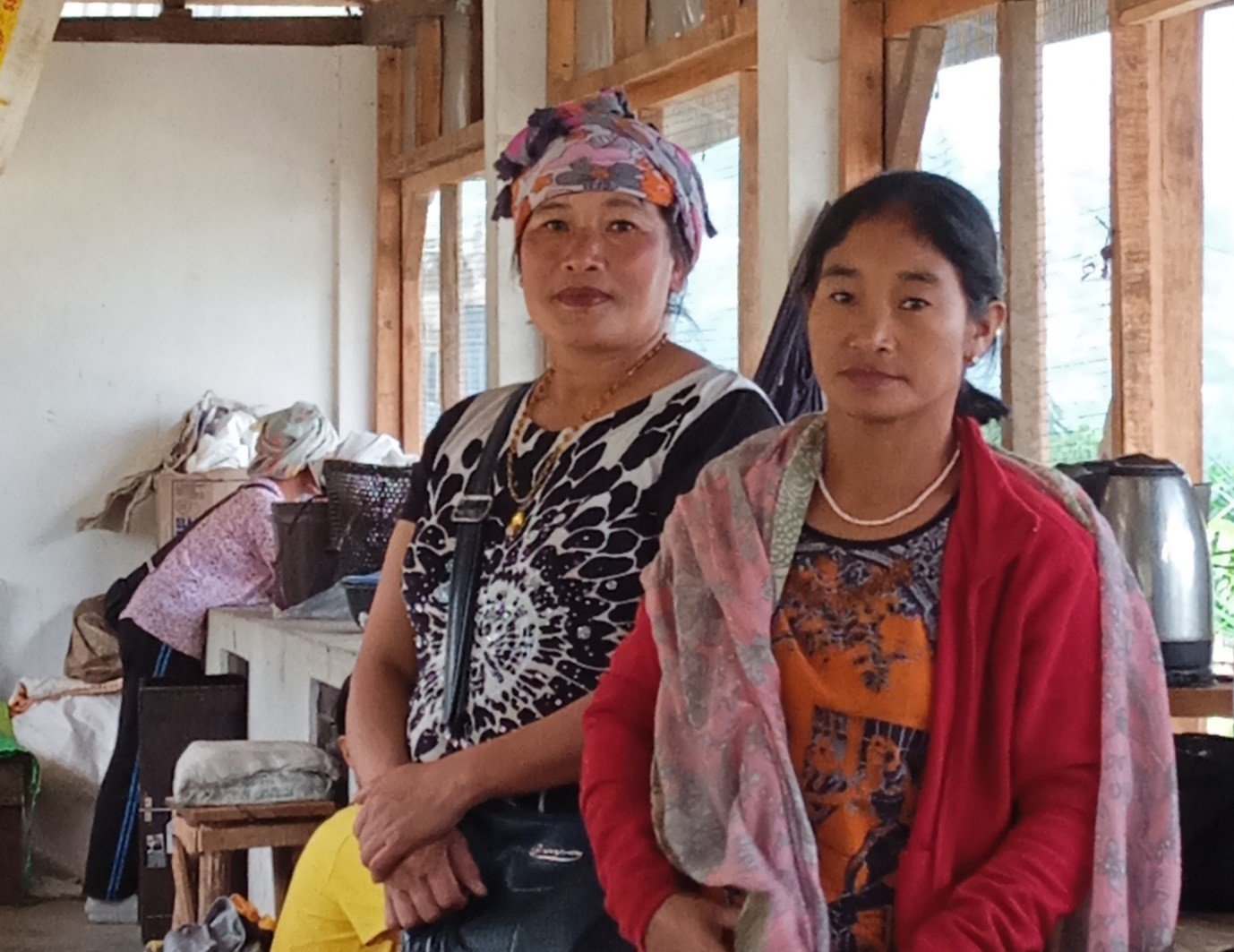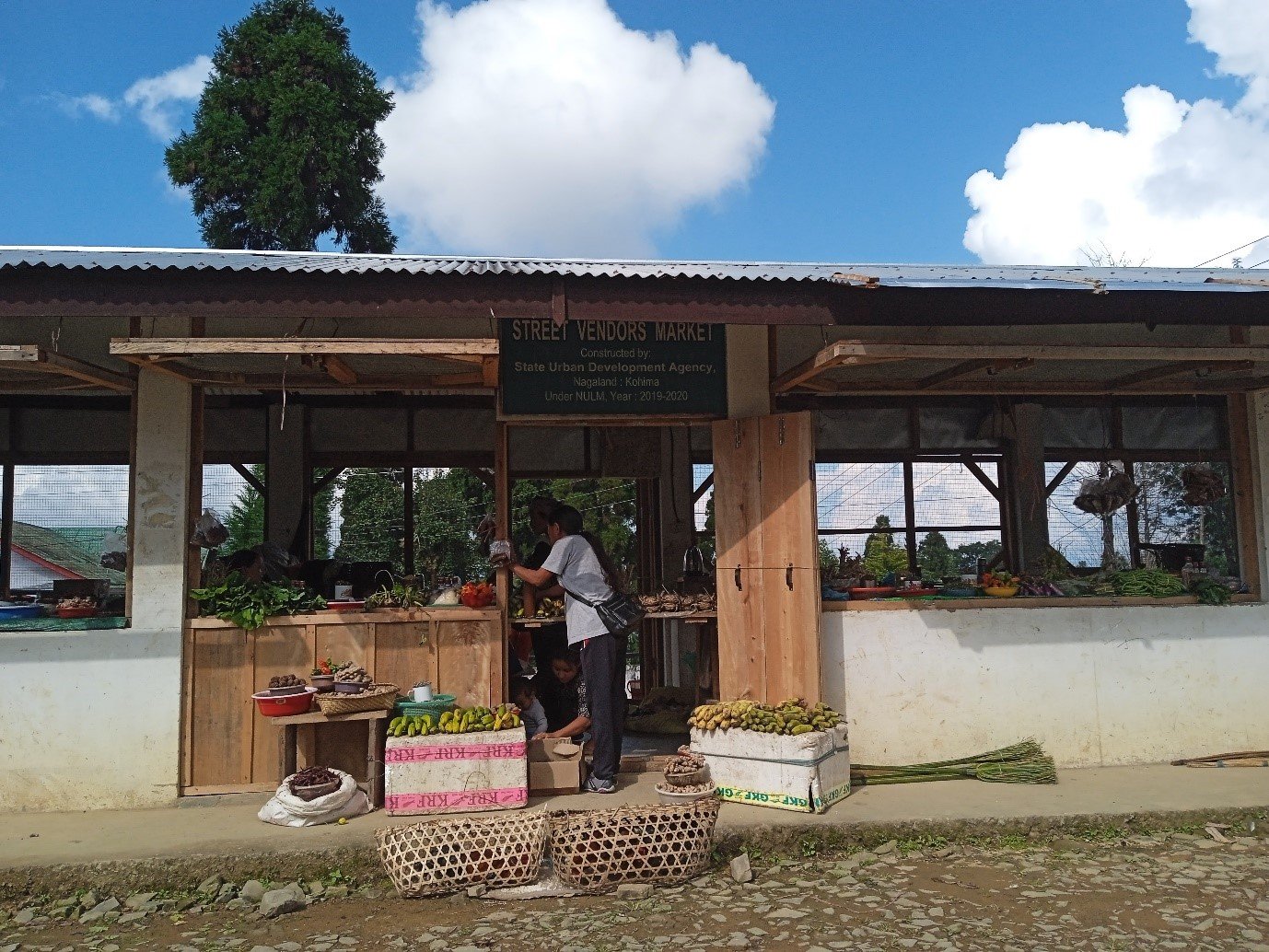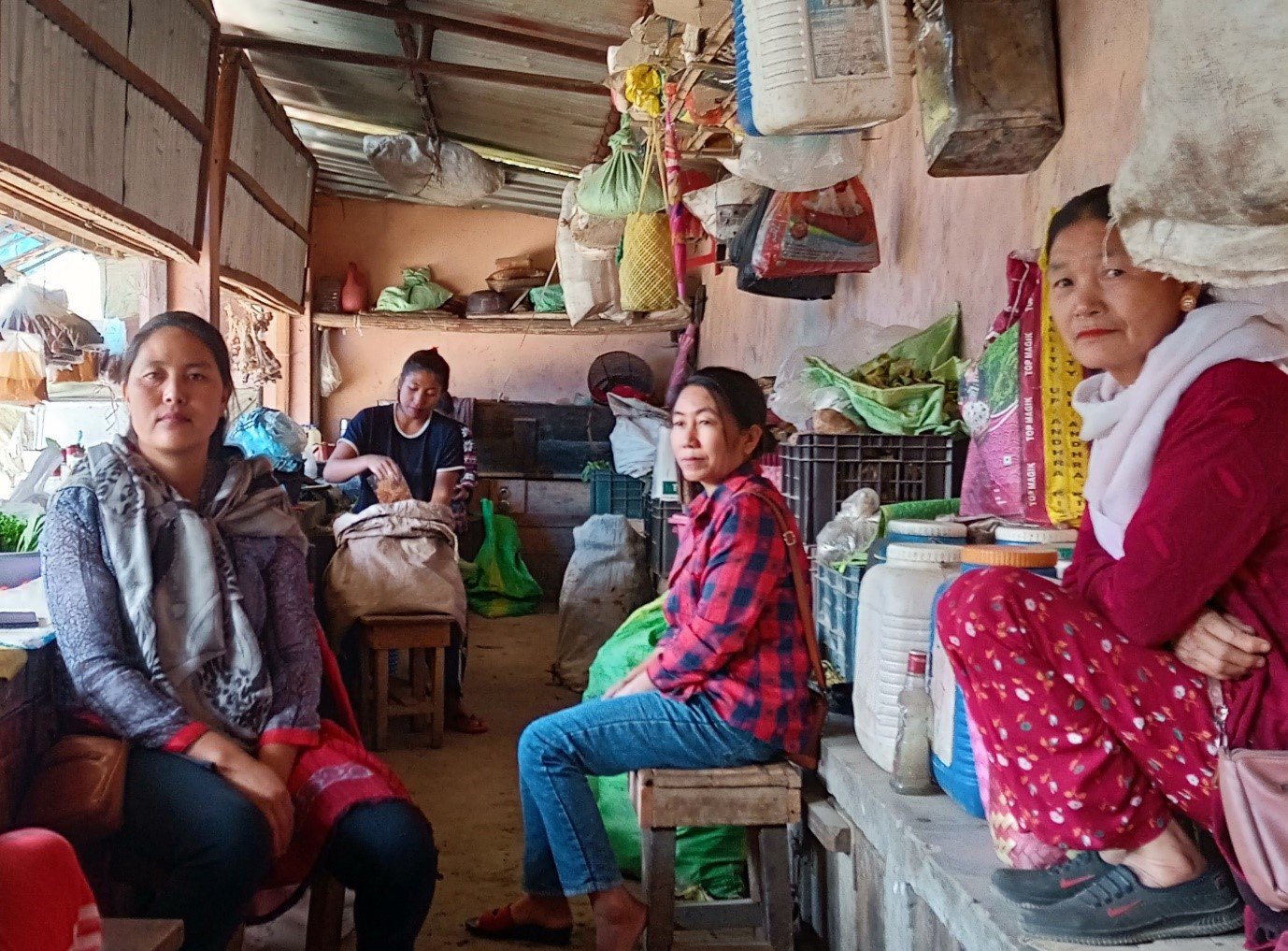Tuensang – a place close to the hearts of so many folks where different tribes have settled – has three main local vegetable vending spots: one at the main market, one at post office colony and the other close to town.
Around a hundred women from all corners of Tuensang gather at their respective spot to carry out vending activities regularly, working as local vegetable vendors. These women engage in such income generating activities to support their families and children.
They begin their day collecting produce to sell at around six in the morning from the supply that comes from the villages of Tuensang, Chingmei, Longdang and Hakchang. They then carry on with their daily vending and head home around four in the afternoon.

They begin their day collecting produce to sell at around six in the morning (NT Photos)
The places these women occupy are more than vending spaces. For them, these are places where they engage in small talk with other vendors and customers, but most importantly these are places where they share happiness and grieve, joy and disappointment.
“We were strangers but now we have all become friends, it’s like a family,” one vendor shared.

The places these women occupy are more than vending spaces. (NT Photos)
While some women have joined the trade rather recently, others have been here in these places for decades. A woman who has been in the trade for the past three year points out: “when the other person is in need of money or goods, we do a lot of adjustments for one another”.
These women play an important role in the family as pillars of support, earning money to support their family while paying for their children’s education. Many have joined the trade because farming work simply did not suffice in generating income.
“While I do the vegetable business, my husband works as a carpenter. Likewise, some of my friends’ husbands weave basket and do other menial works,” said a woman vendor who has been in the trade for sixteen years.
The place they occupy are important and strategic because these are close to the main town with many pedestrians.

The shed helped improve conditions under which women carried out vending activities. (NT Photos)
Initially, women vendors would sell vegetables and other local farm produce on the sides of the road but rain and sun created challenges. This however improved once a shed was constructed for them by the government. The women have to pay a daily tax of Rs 20 for occupying the shed.
Sales are unpredictable. There are days when profit margins are higher especially with particular vegetables like stinky beans; on other days the sales are low. Women at times are left with no alternative but to dispose off unsold produce or use them as pig fodder.
These women in marketplaces play an important role making local produce available for customers. They are part of an intricate network of farmers, suppliers, women vendors and consumers while still engaging in caregiving work at home.
They hope for good health and strength as they continue their work in markets across Tuensang every day.


